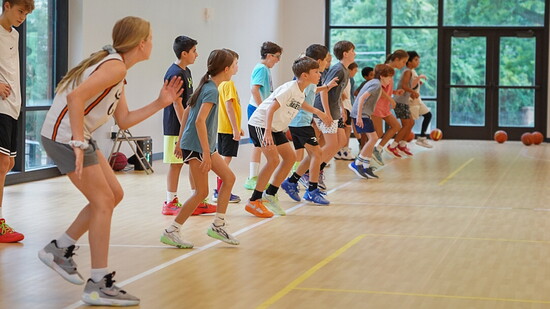In just three years, Lawrence Gordon has grown his youth basketball program from 10 kids to 250. Charlotte Skill Factory is unique among Amateur Athletic Union, or AAU, programs, he says, because it's built on connection rather than simply competition.
"The relationships you build makes sports special," he tells his players in kindergarten through 10th grade.
When Gordon moved to Charlotte in 2012, he took a corporate job. But after the pandemic, he decided to get back into coaching youth basketball which he'd started as a 19-year-old college student. He walked onto the basketball team at Morris Brown College but switched gears after he had to sit out because of his grades.
Gordon founded Sport Mode One, a sports event company that hosts two high school tournaments a year, and coached the seventh grade boys team at Charlotte Country Day. He recently stepped back from middle school coaching to focus on Charlotte Skill Factory, which he says is the fasting growing program in SouthPark and Myers Park.
What makes your program different from others in AAU?
We don't do tryouts. We want to take away the anxiety and pressure of tryouts, where kids feel like they're not good enough at the young ages. It's more like a life group. We decide to do life with kids. We're basically saying, whoever in the neighborhood wants to participate with our program, come and we will help develop, train and equip you to make your middle school team. Over 90% of the kids that have played more than two seasons with us have made their seventh and eighth grade basketball teams.
AAU teams are typically focused more on winning?
It's more volatile. You could have a team and in two weeks, a really good kid comes along; they'll add that kid to the team. It's much more sport-centric, trying to win at any cost. With us, we think about the kids and their emotional health….It's a lot of talk around relationship. Who's on your sofa? Who are you doing life with and building up that social capital and that social connection? Those are things that are really important.
You like to attract players from different school and socioeconomic backgrounds?
We're trying to promote that we all live in the same community. But not a lot of programs do. They're just trying get the best players, let's go win this championship. And then when kids have won, they're depressed and not feeling good. They don't even know their coach’s name. I had a parent the other day say, "Lawrence, I don't even know who’s coaching my son." That's crazy to me, but that's normal. Or, if you ask a kid, "Hey, who's on your team?" They don't know the kids’ names. Those are things we think are very important. You're not just here to get better in sports. You're also here to meet a new friend. You should want that.
Did you experience something with another program that you were determined to change?
The program I ran in Atlanta was a very competitive, toxic environment. I always told myself, if I ever were to get back into it, I would be more disciplined to say, "I'm not going to chase culture. I'm not going to chase popularity, social media clicks. I'm going to do what I believe is true and right."
